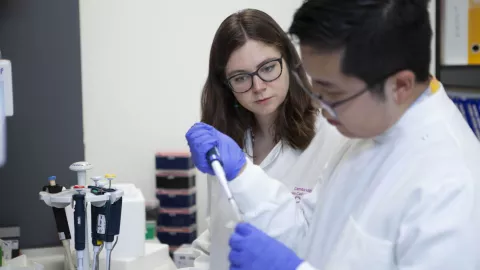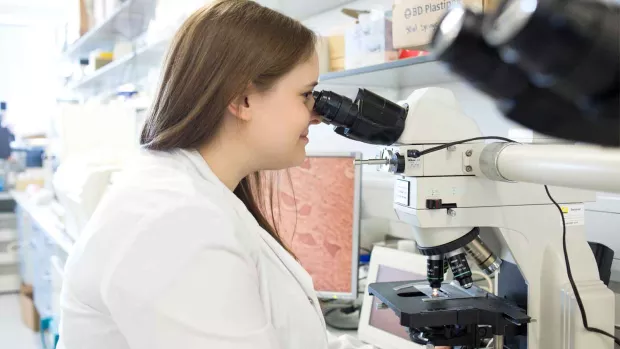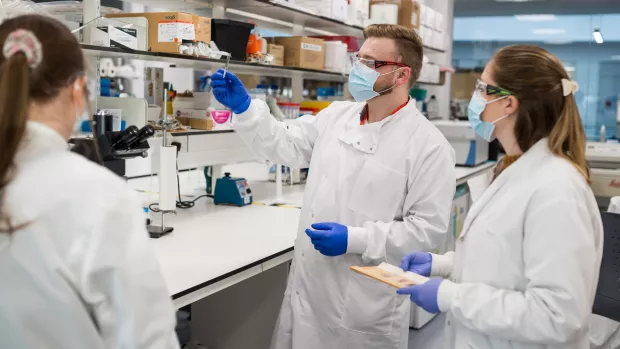
How we decide what to fund
We only fund top quality science that will make a real difference for people with MS.
To make sure we fund the best research, we review our projects in detail. And we involve experts and people with MS in all our decisions.
How does it work?
Every year we ask scientists to submit their innovative research ideas. These can cover any aspect of MS research, from developing new symptom management programmes to uncovering what causes progression.
All our research projects are reviewed and scored by world-leading researchers. All applications are also reviewed by people with MS through our amazing Research Network.
If a project looks promising it’s taken through to our expert panels for further review. The panels are made up of MS researchers, clinical experts and members of our Research Network. They recommend which projects should be funded, and these are approved by our Board of Trustees.
Our expert panels are drawn from a group of our reviewers in The Expert Review Network (TERN).
Who decides?
We involve MS researchers, health care professionals and people with MS in all our decisions.
What makes a great project?
To get funded, projects need to answer the key questions we have as a community. In 2012 we put people with MS at the heart of our research programme, working with them to develop our top 10 research priorities.
Projects must also be based on top quality evidence, and fit with our research strategy. We want our projects to have well defined aims, and a clear plan for how to achieve them.
Read our guide to help you submit the strongest possible application to the our grant round. This document was made by compiling the most frequently cited concerns of our grant review panels (GRPs).
Who can apply?
Our research grants can only be held by scientists working in recognised NHS and UK academic institutions. We welcome collaborations with research groups outside the UK, but the research must be led by a UK-based researcher.
What happens to unsuccessful applications?
Like most other charities and funding bodies, we keep details of unsuccessful applications confidential. This gives the researchers an opportunity to take any feedback on board and improve their application. And it allows them to reapply for funding in the future.
This is in line with the Association for Medical Research Charities (AMRC) guidelines on funding research.



